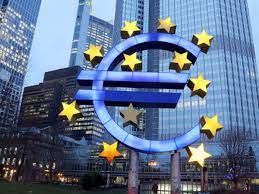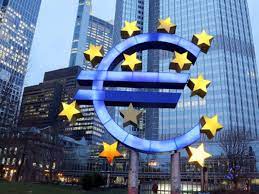
The European Central Bank now had a tough decision to take a policy call because the growth of the euro zone economy throughout the summer was quite robust as economic activity continued to recover following the coronavirus outbreak, but at the same time inflation is outpacing predictions.
With consumers returning to physical stores and events, many companies have been unable to cope up with the increased demand, which has placed additional pressure on prices that are already high because of to constantly growing commodity costs.
In the third quarter, the growth was at a faster than expected rate of 2.2 per cent for the economy of the 19 euro-area nations which put the euro zone on line to reclaim its volume at pre-crisis levels by the end of the current year.
The strong growth numbers we5re possible despite the fact that Germany, the largest economy of the bloc, was struggling due to a chip shortage which impacted the country’s enormous automobile manufacturing industry.
But the performance of the bloc was enhanced by the strong performance of France, Italy, Belgium, and Austria, countries that have historically been economic stragglers.
The inflation in the euro zone was pushed to 4.1 per cent this month because of the fast growth of the region, compounded by rising oil costs. The rate of inflation was two times the target set by the European Central Bank and matched the data that was an all-time high since the launch of the data series in 1997.
While increasing energy costs and tax rises were the primary drivers of inflation, rising prices for services and industrial products also reflected growing price pressures from supply bottlenecks, which are also causes of concern for the ECB, which is gradually admitting that the price growth may be more persistent than previously anticipated.
However, growth and inflation may be approaching a tipping point.
With supply constraints, labor shortages, and the rise of coronavirus infections which has impacted output, the euro zone economy is encountering roadblocks because of these factors. Furthermore, once peak-pandemic lows and the impact of tax rises are removed from the numbers, inflation is anticipated to decline.
"Growth will be much slower in the final quarter as supply chain disruption, slowing global demand, and some labor shortages hamper production," Andrew Kenningham at Capital Economics said.
Economists believe there will be no major upheaval in the near future.
According to a crucial ECB poll issued on Friday, growth in 2022 is predicted to be 4.5 per cent, implying that fast expansion would continue, although at a slower pace.
Inflation is also projected to moderate, though how quickly and how much remains unknown.
Compared to what the ECB once believed, the fall would be slower than expected if these indicators are to be believed, which heightens the possibility that high prices, even if only temporary, may become entrenched in wage and corporate pricing systems.
Supply disruptions will endure, ECB President Christine Lagarde admitted on Thursday, while also predicting that inflation would fall below the 2 per cent target in the medium term, necessitating no policy reaction as of now.
(Source:www.reuters.com)
With consumers returning to physical stores and events, many companies have been unable to cope up with the increased demand, which has placed additional pressure on prices that are already high because of to constantly growing commodity costs.
In the third quarter, the growth was at a faster than expected rate of 2.2 per cent for the economy of the 19 euro-area nations which put the euro zone on line to reclaim its volume at pre-crisis levels by the end of the current year.
The strong growth numbers we5re possible despite the fact that Germany, the largest economy of the bloc, was struggling due to a chip shortage which impacted the country’s enormous automobile manufacturing industry.
But the performance of the bloc was enhanced by the strong performance of France, Italy, Belgium, and Austria, countries that have historically been economic stragglers.
The inflation in the euro zone was pushed to 4.1 per cent this month because of the fast growth of the region, compounded by rising oil costs. The rate of inflation was two times the target set by the European Central Bank and matched the data that was an all-time high since the launch of the data series in 1997.
While increasing energy costs and tax rises were the primary drivers of inflation, rising prices for services and industrial products also reflected growing price pressures from supply bottlenecks, which are also causes of concern for the ECB, which is gradually admitting that the price growth may be more persistent than previously anticipated.
However, growth and inflation may be approaching a tipping point.
With supply constraints, labor shortages, and the rise of coronavirus infections which has impacted output, the euro zone economy is encountering roadblocks because of these factors. Furthermore, once peak-pandemic lows and the impact of tax rises are removed from the numbers, inflation is anticipated to decline.
"Growth will be much slower in the final quarter as supply chain disruption, slowing global demand, and some labor shortages hamper production," Andrew Kenningham at Capital Economics said.
Economists believe there will be no major upheaval in the near future.
According to a crucial ECB poll issued on Friday, growth in 2022 is predicted to be 4.5 per cent, implying that fast expansion would continue, although at a slower pace.
Inflation is also projected to moderate, though how quickly and how much remains unknown.
Compared to what the ECB once believed, the fall would be slower than expected if these indicators are to be believed, which heightens the possibility that high prices, even if only temporary, may become entrenched in wage and corporate pricing systems.
Supply disruptions will endure, ECB President Christine Lagarde admitted on Thursday, while also predicting that inflation would fall below the 2 per cent target in the medium term, necessitating no policy reaction as of now.
(Source:www.reuters.com)





